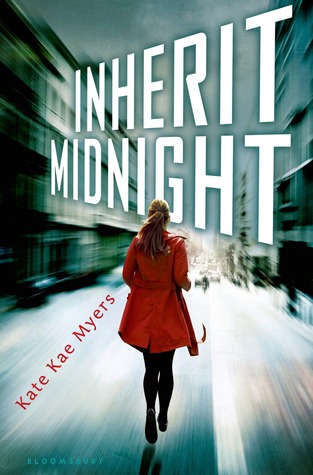Life has been busy over this past month, but that doesn't mean I haven't been reading! After all, I still have my train ride to and from work, and of course, there's whatever tome is resting on the nightstand to ease me into Dreamland. I'm working through an incredibly lengthy library book right now, but in the meantime, here's a good opportunity to talk about the other books I've read lately. I'm on a run of novels, so it looks like I'll have to pick up a non-fiction soon.
First up is Andrew Smith's new book, The Alex Crow. You'll remember that Smith's Grasshopper Jungle was my favorite book of 2014, so I'm pretty much immediately on-board for anything he publishes these days. The Alex Crow wasn't quite the high point that Grasshopper Jungle was, but it was still an interesting read. It's tough to describe the plot, since it interweaves a lot of disparate elements, from war refugees to mind control to the horrors of summer camp to countless masturbation euphemisms. It'd be extremely easy for a book like this to run completely off the rails, but it never does. Everything comes together to tell one cohesive story, albeit a deeply weird one. It defies description, though, so if you're as big a fan of Smith's work as I am, by all means, check it out.
Next was Kate Kae Myers' 2015 book, Inherit Midnight, which may as well have come with the subtitle "A Book With a Premise Specifically Tailored to Andy's Tastes". It's like The Westing Game and The Amazing Race had a baby. Awesome, right? Unfortunately, premise doesn't mean much if the execution is off, and I'm sorry to say... The execution is off. It start off fine, as seventeen-year-old Avery makes a daring escape from the boarding school she hates. Her prim, disapproving grandmother has sent her there, but Avery is brought back to the familial mansion along with the snobbish relatives who detest her for a surprising meeting. Her grandmother has set a test to determine who the worthiest person is to inherit her vast estate. The heirs are sent on a worldwide competition that tests their skills, and along the way, Avery discovers new things about her family and - as legally required of all YA female protagonists these days - finds romance as well.
I should have loved this book, but it was woefully contrived. And before you yell at me that OF COURSE a fictional book about a worldwide adventure competition is contrived, what I mean by that is nothing happens naturally. Relatives are mean to Avery until the plot demands that they're understanding. An ally becomes a boyfriend in the span of two seconds, before the young man has any time to know anything about her personality. If there's anything more disappointing than a bad book, it's a book that had the potential to be great, but fumbles it.
I didn't have to worry about bad writing when it came to David Nicholls' 2014 novel, Us. I liked One Day a lot, so I was looking forward to this book about a man who uses the opportunity of a family vacation to attempt to connect with his distant teenage son and to repair his weakening marriage. The story also flashes back to happier days and to the idyllic relationship that the narrator aches to recover. There's a lot to like about this book; Nicholls is able to make the problems of affluent white people a lot more palatable than someone like Jonathan Franzen. By the same token, though, this book appears to want to stress the importance of cherishing life's good moments while you have them, but winds up validating my choice to never, ever have children. The narrator's good intentions are stymied at every turn by a wife and son who come off as egocentric and selfish, which I'm pretty sure is not supposed to be the takeaway. It was worth the read, but it ultimately wound up depressing me a little bit.
For family turmoil done right, turn to Angela Flournoy's 2015 novel The Turner House. This one also skips in time, but rather than an upper-middle class family traipsing across Europe, this book deals with the Turners, a struggling African-American family with 13 children, growing up in a crumbling Detroit. The book avoids the issue of spreading itself too thin by focusing on just a handful of the kids and the emotional baggage that comes along with an ill, aging parent, unhelpful siblings, and a sackful of money problems. This was a remarkable book, and is the rare novel that really succeeds at being transportive. I haven't read something that was so good at making me feel I was actually in the book's universe since The Night Circus.
Finally, it was time for something a little more frightening, and what is scarier than the hysteria that can take over an entire community? In Megan Abbott's The Fever (2014), a student named Deenie is understandably concerned when her best friend Lise suffers a seizure in the middle of class. The remainder of the student body (and their parents) are more interested in gossip and rumor-mongering than Lise's condition, and when a second girl suffers a similar attack, the school community erupts. The sickness only seems to affect the girls, and various causes are blamed from lake water to vaccines. No amount of logical rationale is enough to soothe angry parents, as panic spreads like wildfire. The book is a little flat, but makes a lot of smart choices about how its characters respond to the sweeping sickness and what that says about modern society.
The Alex Crow: B
Inherit Midnight: C+
Us: B-
The Turner House: A-
The Fever: B
Subscribe to:
Post Comments (Atom)





0 comments:
Post a Comment